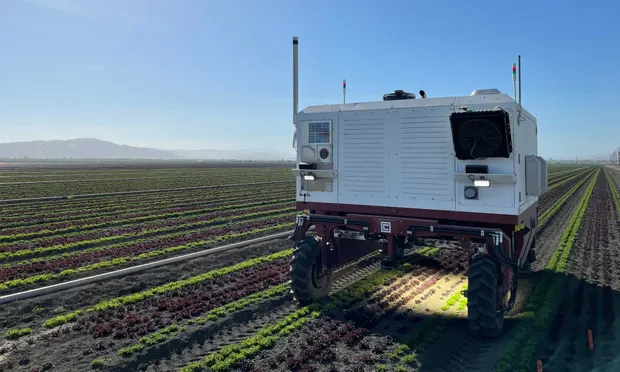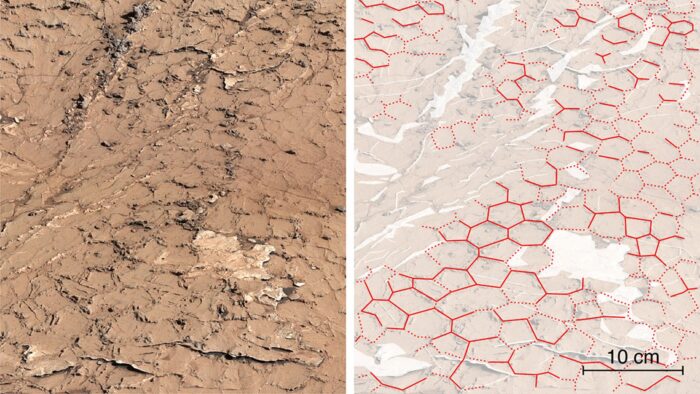Herbicides—chemical weed-killing compounds—are a big issue in farming these days.
Study after study have shown that these can have a negative effect on the environment, the long-term health of a field, and even the humans who eat the crops they are designed to protect. But at the same time, many farmers struggle coming up with an alternative to keeping their massive fields weed-free. If the weeds grow too wild among the crops, they can lower the yield (or amount of the crops that are grown).
In short, if not herbicides, then what?
Carbon Robotics, a tech company in Seattle, believes that it has the solution. Autonomous weed-killing robots! Using a combination of super computers, cameras, and a slew of high-heat lasers, their brand new car-sized bots are designed to take weed removal into a brand new era.
Lasers are a GO!
The robot—known as the Carbon Robotics Autonoous Weeder—works like this. First it moves slowly over the rows of crops. As it is passing over the plants, it is using a camera to view the ground in high definition. An onboard super computer is programmed to recognize the crop that the farmer has planted—as well as the weeds that threaten it. It analyzes the footage in real time to locate weeds, and then—ZAP!
In a split second, an intense burst of high heat laser kills the weed. And another. And another. And...
All in all, these autonomous (self-driving) machines are capable of killing around 100,000 weeds in one hour. And it does it all without any chemicals!
Watch it in action in the video below.
The downside
So sign us up, you say? Well, not so fast...
For one, this impressive machine currently costs over $100,000.
Second, the machines currently run on fossil fuels, which is another environmental no-no. To have them truly start a revolution in modern farming, these two issues—costs and carbon neutrality (that's not introducing more carbon gas into the atmosphere)—will probably need to be addressed.
But whether it is this exact machine or others like it, robots might help us change how we farm. There are already some robots being developed to not only target weeds, but crop-harming insects, too. This is a big deal because insecticides (chemicals targeted to kill insects on crops) are as much of a problem as herbicides. Together, these kinds of chemicals are called pesticides.
Will robots help lead humanity away from chemical farming? One thing is for sure—what once seemed like a fantastical future feels like it is now only around the corner.
 Zap! Zap! The Carbon Robotics Autonomous Weeder in action. (Carbon Robotics)
Zap! Zap! The Carbon Robotics Autonomous Weeder in action. (Carbon Robotics)









